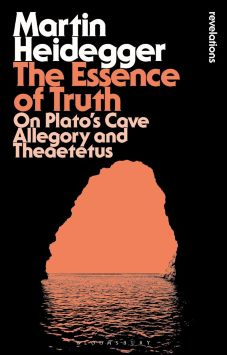By Michael Tsarion
The error of ages is repeated endlessly, whereas none of the wisdom ever gets a look in.
-anon
In his book ‘‘Introduction to Metaphysics?’’ (1935) the German philosopher Martin Heidegger asked a question posed by deep thinkers since the dawn of human history: ‘’Why are there beings at all, and why not rather nothing?’’
This question and others like it are the province of Metaphysics, the branch of philosophy dealing with the mysteries of Being and Existence.
Heidegger was one of the greatest thinkers of all time.
Although he was not keen on the term himself, he’s considered to be a preeminent existentialist philosopher. His first monumental book, entitled ‘’Being and Time,’’ (1927) is rightly hailed as a seminal existentialist text.
Throughout his career, Heidegger set himself a strange intellectual mission, namely the overthrowing of the entire metaphysical tradition, that began with Plato back in the Fifth Century BC. Scholars are divided as to whether Heidegger’s deconstructive project succeeded. Some wonder why it preoccupied him at all. Was it not just an exercise in futility?
After completing ‘’Being and Time,’’ Heidegger openly confessed that the task of overcoming metaphysics had not been sufficiently accomplished. More than a decade later, in his difficult work, ‘’Contributions to Philosophy,’’ he tells his readers that the task of overcoming metaphysics is to be achieved by some specially endowed ‘’future ones,’’ after his time, and after our time. Many bemused readers, as well as academics, take this as a tacit admittance of failure. Many believe it was ridiculous to imagine that such an overwhelming project could be achieved at all.
This does not mean, however, that Heidegger and other existentialists did not levy insightful critiques against the long line of metaphysical thinkers, from Plato to Descartes. They certainly did, and we would do well to take their points very seriously. The top existentialist thinkers – men such as, Blaise Pascal, Fyodor Dostoevsky, Martin Buber, Soren Kierkegaard, Gabreil Marcel, Lev Shestov, Nikolai Berdyaev, Karl Jaspers, Paul Tillich and Jean Paul Sartre – offered critiques not only about previous philosophies, but also about religion, science, technology, education, consumerism and everyday existence.
It is well known that Nietzsche believed that both religion and philosophy were in dire straits, and that humankind was destined to enter an epoch of decadence and nihilism. Some scholars believe it was Nietzsche’s ideas about the ‘’death of God’’ that inspired Heidegger’s thinking when it came to the deconstruction of metaphysics. Apparently both men believed that metaphysics, and philosophy in general, had taken a wrong turn and that greater attention ought to be paid to pre-Socratic sages, such as Heraclitus, Parmenides and Empedocles.
To give Heidegger his due, we see that in later works, such as ‘’The Essence of Truth,’’ (1932) there are oblique indications as to why He had an animus toward metaphysics. However, this text, like others, is anything but clear. For many readers, the ideas expressed are largely unintelligible. Even readers with a background in philosophy find Heidegger’s later works to be complex, obscure and even incomprehensible. He has been repeatedly denounced as an obscurantist. In any case, the question of Being is a metaphysical question, through and through. This point is simply not negotiable.
Making itself intelligible is suicide for philosophy - Martin Heidegger





